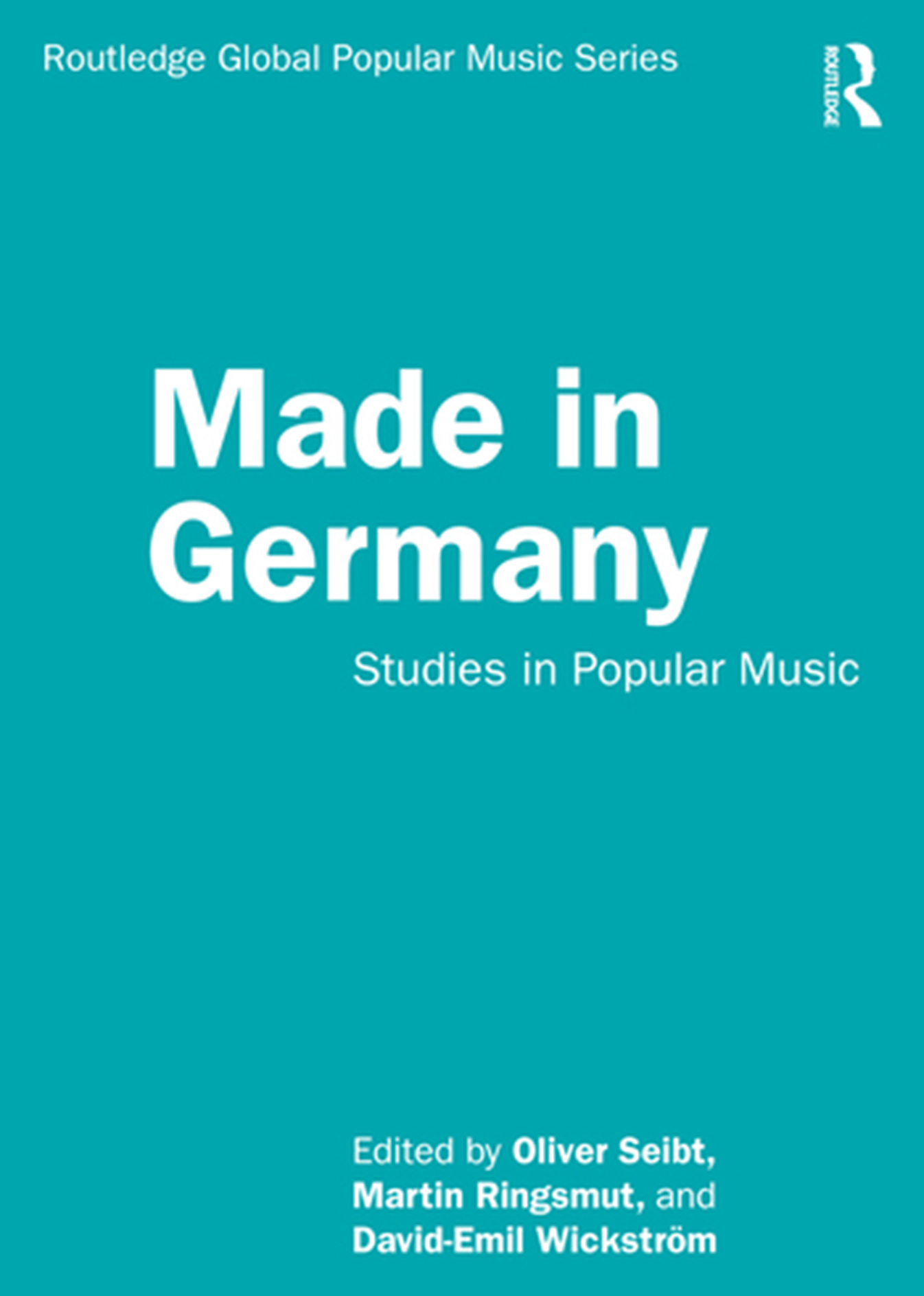Studies in Popular Music
Edited by Oliver Seibt, Martin Ringsmut and David-Emil Wickström
September 2020 | Routledge
Introduction
Deutschland – Echt jetzt? German Popular Music’s Complicated Relationship with German Identity
OLIVER SEIBT, MARTIN RINGSMUT, and DAVID-EMIL WICKSTRÖM
Interview: Rocking the Academy? Two Cold-War Careers and the Emergence of Popular Music Studies and Higher Popular Music Education in Germany. An Interview with Peter Wicke and Udo Dahmen
DAVID-EMIL WICKSTRÖM
Part I: Historical Spotlights
1. Transnational Networks and Intermedial Interfaces in German Popular Music, 1900-1939
CAROLINE STAHRENBERG
2. Nazis and Quiet Sounds: Popular Music, Simulated Normality, and Cultural Niches in the Terror Regime, 1933-45
JENS GERRIT PAPENBURG
3. Conflicting Identities: The Meaning and Significance of Popular Music in the GDR
MICHAEL RAUHUT
4. ‘Party on the Death Strip’ – Reflections on an Historical Turning Point
SUSANNE BINAS-PREISENDÖRFER
Part II: Globally German
5. The Krauts Are Coming: Electronic Music and Rock in the 1970s
ULRICH ADELT
6. German Metal Attack: Power Metal in and from Germany
JAN-PETER HERBST
7. German Longings: A Dialogue on the Promises and Dangers of National Stereotypes
MELANIE SCHILLER and JEROEN DE KLOET
Part III: Also “Made in Germany”
8. Peepl rock: Post-Soviet Popular Music in Germany
DAVID-EMIL WICKSTRÖM
9. Made in Almanya: The Birth of Turkish Rap
THOMAS SOLOMON
10. G.I. Blues and German Schlager: The Politics of Popular Music in Germany during the Cold War
BODO MROZEK
Part IV: Explicitly German
11. Neue Deutsche Welle: Tactical Affirmation as a Strategy of Subversion
BARBARA HORNBERGER
12. “One Day You Will Wish We’d Only Played Music”: Some Remarks on Recent Developments of Germany’s RechtsRock Scene
THORSTEN HINDRICHS
13. Hallo Blumenau, bom dia Brasil! German Music Beyond Germany
JULIO MENDIÌVIL
Part V: Reluctantly German
14. “Meine Lieder sind anders”: Hildegard Knef and the Idea(l) of German Chanson
RENEÌ MICHAELSEN
15. How Munich and Frankfurt Brought (Electronic) Dance Music to the Top of the International Charts with Eurodisco and Eurodance – and Why Germany Was Not Involved
HEIKO WANDLER
16. Japonisme 2.0: German visual-kei Fans, Tokio Hotel, and the Popular Music Genre That Must Not Exist
OLIVER SEIBT
Coda
17. The Germaican Connection – German Reggae Abroad
MARTIN RINGSMUT
18. Interview: Standing Up Against Discrimination and Exclusion: An Interview with Kutlu Yurtseven (Microphone Mafia)
MONIKA E. SCHOOP
